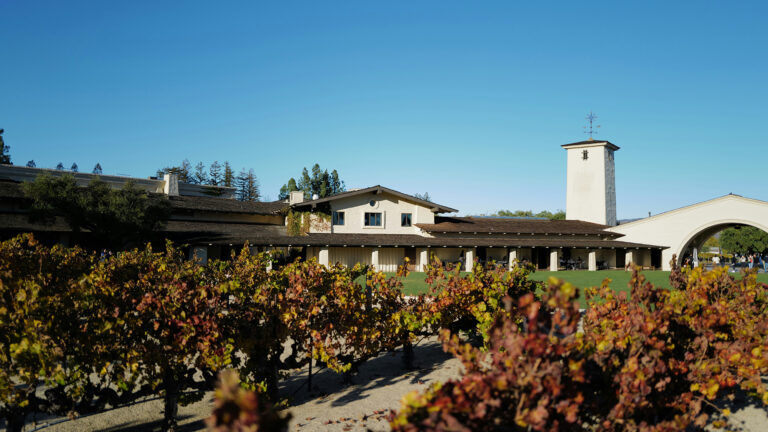David Veal has the distinction of taking a new
chief investment officer job during the coronavirus pandemic in August of 2021,
and going on to head the top performing public fund in the United States on December
31, 2022. As the incoming chief investment officer at ERS of Texas, he went
from a four-person investment team in his prior role to commanding a 77-person
well-oiled investment machine. During his prior role as CIO of the City of
Austin, he took the city fund from bottom quartile to top quartile performance
within five years.
Veal was hired during the pandemic, and
interviewed remotely, but it wasn’t his first rodeo with ERS. He had spent
three years at the fund as an equity analyst and sector strategist starting in
March 2009. He also worked at Texas Teachers, Morgan Stanley, was CIO at a
family office. While serving as a Navy officer
for 6 years, he was twice awarded the Navy Commendation Medal for meritorious
service. He holds an MBA from the University of Michigan and a degree in
industrial engineering from Auburn University.
Over the past two years, Veal has been making
changes to further streamline the $36 billion ERS fund. During this interview,
he and Christine Giordano discuss what it was like to start his new job during
the pandemic, what changes he’s made to the fund, how he’s preparing it for the future, and what he’s done to further
build cohesiveness throughout his top-performing team.
On September 27 David Veal will be presented
with a Strategy Award from Markets Group and Institutional Allocator at the 10th
Annual Texas Institutional Forum in Austin, Texas. The
Strategy Award seeks to identify thought-leading chief investment officers
within the industry, and spotlight their ways of approaching the new economy. The
award presentation will be followed by a live, Chatham House discussion with
Veal. Allocators are encouraged to attend the event on Sept. 26 and Sept 27.
Giordano:
ERS was in the top 1% of funds last year?
Veal:
Yes indeed.
According to NEPC, as of December 31, ERS was the number one fund in the
country among our peers [$1 billion and above] for trailing three-year performance. As of September
30, we were the number one fund for trailing five-year performance. As you
know, much of this depends on the measurement parameters such as the endpoint,
but overall I think that tells you that it has been a pretty durable period of
outperformance for ERS.
Giordano:
Congratulations. And this was all during also
your first year? So was there pressure to keep the returns high?
Veal:
Well, everyone prefers good performance, right?
This is a performance-oriented business and we pride ourselves here on the work
that we do so. ERS has always been run really well and so, to me, it was about
carrying on that tradition and building on the work that had been done many
years before me. There was definitely a desire on everyone’s part that we keep
that track record of excellence intact.
Giordano:
You stepped into the role at Texas ERS in
August of 2021 from the City of Austin ERS, where you spent five years. And you
transitioned during the Coronavirus pandemic?
Veal:
Yes, even my interview process was, for the
most part, virtual. That was a unique experience in its own right.
Giordano:
What things have you done that aided in that
transition?
Veal:
Well, first and foremost, I think one of the
most important things is that this business about is building relationships. Having this be my second tour at ERS – since
as you may recall, I was here from 2009 to 2012 – really
helped since I was well acquainted with about half the team and had strong preexisting
relationships with a lot of the folks here.
When you’re joining in a pandemic, where it’s
hard to get people into the office in the first place, it’s helpful to not have
to build all of these relationships from scratch. I had a natural advantage of
some pretty strong pre-existing relationships and I knew the culture, knew my
way around the building, things like that.
Obviously the cultural element is important, too. One of the things we have been really focusing
on is how we build a strong culture in a remote or hybrid environment. We were fully remote when I joined and have
moved into a hybrid environment ever since about November of 2021.
To help build culture, we now have a monthly
“all hands” meeting, where we have a lot of fun with ‘get to know you’
exercises, we talk about performance, and we share personal updates around
weddings and babies and things like that. We’re very intentional about
recognizing day-to-day contributions through what we call our gold stars. We literally have squishy gold stars that we
give out to people just to recognize the great work that’s being done on an
ongoing basis. That’s a ton of fun and we’ve had a lot of success there,
which I think does build a more cohesive team.
Giordano:
‘All Hands’ is a nice pun, especially in Texas,
right?
Veal
Yes and since I’m a former Navy officer, it’s also
a Navy reference at some level.
Giordano:
How did your Navy experience aid you in this role?
Veal:
Again, everything in this business begins and
ends with people. When I was a Navy officer aboard ship, I led a division of 40
people from all walks of life. That is a formative experience early on:
understanding that different things motivate different people. I think what I
learned there was that much of leadership is about finding the right sort of
role and responsibilities for people. What are their gifts and their abilities?
How do you marry those gifts and abilities to the task at hand? I think that is
something I have really brought to this role and that’s been something I’ve
focused on during my two years here, which is just making sure we have the
right people in the right places. Our goal is to craft the right role for
everybody, so that everyone will thrive and flourish within the organization.
Giordano:
Have you made a lot of shifts?
Veal:
I have held a number of different roles since
moving to Austin in 2009, and my favorite book on the topic of making
transitions is called The First 90 Days. It talks about the critical importance of
understanding the situation that you are walking into. It’s about understanding
not only yourself, but also having good agreement with your bosses and the
people hiring you. I had this kind of
agreement when I was at City of Austin, where it was clear to all that we were a
bottom quartile fund that wanted to get into the top quartile. It took five
years to get there, but as an organization we did it.
Here at ERS is was a different situation. Here,
it’s really more of a good-to-great mentality: how do we make this place even
better than it already is? Those are two very different assignments. In a turnaround situation, you have carte
blanche to make a change as you need. It’s sort of a ready-fire-aim situation. Whereas in a good-to-great situation, you are
asking, ‘Hey, first of all, let’s do no harm, right?’ You more or less presume
that everything is in the right place until proven otherwise.
I promised my boss that I was going to spend
the first 90 days listening, just understanding how the organization functions,
what are our strengths and weaknesses are, and all that. Then and only then would I start to implement
any changes that might be necessary. That foundational agreement was one of
those things that was important in the success of the transition.
Even then, after the first 90 days, I found
myself thinking, you know, this place is running pretty well. However, there were
a few things that I think could be better: meeting structures, how we make
decisions, some of those things. By and large, however, it was about being very
careful to honor what already existed and make change only where necessary.
Giordano:
And of course, that begs the question, where
did you make the changes?
Veal:
Well, there were some changes around
organizational structure. So for example, we changed up the title structure: we
now use the title Managing Director and Director for our more senior team
members. We divided the fixed income team into credit and rates teams. The rates team also adopted the cash
portfolio and the trading desk, and so now that’s our Treasury and Trading operation
that’s its own business unit. We wanted cash to be managed more carefully,
particularly in a rising interest rate environment, and that has become a
strategic asset class for us.
We’ve also reorganized our risk management and
portfolio management group a little bit to really focus more on our
philosophies for optimizing the portfolio for a given environment. Before it
was more oriented toward tactical asset allocation, making tilts depending on
what’s cheap and what’s not. Now it’s more about: how do we adapt the portfolio
properly for the kind of environment that we’re in. It’s a nuanced approach,
but it’s an important one when it comes to how you think about managing the
allocation overall.
Giordano:
What was key for you: to be able to react
quickly in the face of volatility or, take advantage of the interest rates,
those kinds of things?
Veal:
Well, I think for me, the last 18 months it’s been
about recognizing that the kind of environment we were heading toward was very
different than what we’ve seen before in that inflation was high, rates are
rising, and correlations were going to move from negative to positive. Suddenly,
Treasury bonds weren’t hedging your equity risk the way they had before. That’s
one of the reasons last year was so pernicious for so many funds, because
stocks and bonds were down together. Fortunately, the way the ERS portfolio is
structured, we have short duration within our Rates book. For example, it’s
only about a four year duration whereas other funds may have a 10 to 12 year
duration. That was much more problematic environment for a highly liquid
portfolio with long duration than it was for us. But at the same time, we also really just wanted
to be in cash, since that was the best performing asset class last year. It’s
those kinds of fundamental allocation decisions that can really make a
difference in that kind of environment.
Giordano:
And being in cash, I understand, to have enough
cash in order to take advantage of the opportunities and short-term T-Bills.
But what about inflation?
Veal:
Well, so cash is interesting. We’re a mature
pension fund, and so our net outflow is about $150 million a month. That
equates to about a 3% or 4% dividend payment every year. That’s why liquidity
serves two purposes for us. It can be preservation of capital, but it’s also to
meet our obligations. This is one of the reasons why I wanted to manage it very
strategically. With rates moving the way they did last year, it was very
advantageous to manage as nimbly as we could. The shorter you are on the curve with
rates going up, the more nimble you’re able to be and that’s been a big help. If
you look at our attribution, Cash has actually added about five basis points of
returns to the overall fund over the last five years.
That’s in terms of just excess return, so Cash been
a meaningful contributor. When you have an alpha target of 50 basis points per
year at the fund level, and you’re getting five of it from cash, that’s a
pretty good day at the office. Our management of cash has been important and it’s
a little bit of a secret weapon relative to some of our peers.
Giordano:
The strong security selection of your Lone Star
Portfolio helps to put you at the top decile of your peers. Can you describe
what’s been doing well within the Lone Star?
Veal:
Sure, it’s important to probably start with why
we created Lone Star in the first place. When I arrived at ERS, we had more than
20 different equity portfolios that were all pursuing a variety of strategies,
we had our basic US large cap all the way to activist portfolios. We had a lot
of different strategies and most of them were adding value in their own right. However,
when you rolled that up to the asset class level, the allocation between those
portfolios were enough that the value is being destroyed overall. When you look
and you see all these portfolios that had positive excess returns, but the
asset class was overall negative. That’s when we decided that simplification is
going to be a big initiative here. We paired the entire allocation down to
about a dozen portfolios, so it’s much more manageable than before.
Lone Star is our only internal portfolio for
public equities. What that allows us to do is to subscribe to more of a “one
team one dream” philosophy where everyone’s pulling on the same oar. There are
no distractions, it’s all the one big global portfolio, and everyone’s focused
on that. Within that team, they’ve also implemented the standardized analysis
process to facilitate communication,
they put in a regular investment committee process. It’s much more about
having a repeatable investment process to drive returns, and that’s done really
well. Since inception, which is only since September 1, but knock on wood, just
in this fiscal year they are up 140 basis points on a relative basis. That’s
what we’re looking for and that’s adding meaningful amounts of return to the
fund overall.
Giordano:
I thought it was perhaps invested in Lone Star state
enterprises. But you said global?
Veal:
Yes, it’s a global portfolio and we gave it a
good, proud name: Lone Star. There’s only one star in the portfolio, as opposed
to having multiple stars that we all have to attend to. It’s all part of that “one
team, one dream” philosophy.
Giordano:
Is there something global that’s been doing
exceptionally well? Or a few other things in the portfolio that give you hope,
as investments for the future?
Veal:
We’ve had our fair share of exposure to some of
the big tech trends, so that’s been that’s been very helpful. We have also maintained an overweight to
energy, which during the inflationary period last year was actually really good
for us. That’s also been true both in public equity, private equity, and even in
infrastructure, we have a fair amount of energy. That’s been a good allocation
and I’m optimistic about that long term and I think that’s still going to be a
great space to be in.
Giordano:
Your private equity portfolio has delivered 95
basis points of excess returns. Along with choosing good managers, what’s the
approach?
Veal:
Yes, at the trust level for the fund overall, that’s
been the biggest contributor to our leading performance. When you look at
what’s gotten us into that top decile of peers, private equity has been the
single biggest contributor.
We’ve got a great team, headed up by my
colleague, Ricardo Lyra, and we’ve made a lot of investments in our people.
It’s also very much a team effort across the organization. We’ve got a great
operational due diligence team. Meagan Larson does a great job of kicking the
tires in the back office, making sure we’re not going to make a mistake. We’ve
got a great consultant in Aksia that does great work on diligence, idea
generation, portfolio construction, all of that. It’s also important to say
that I think our Asset Class Investment Committee process functions extremely
well. That’s due in part to the dedication of our Investment Advisory Committee
members. So there’s a lot that goes into the soup, but at the end of the day,
it’s been extremely effective. I’m proud to say that I think we have one of the
best private equity efforts out there.
Giordano:
You’ve worked at a number of funds, but that
Top 1% distinction that ERS achieved is just remarkable. What are some of the
things that you’ve done differently to get you there?
Veal:
Well, if you categorized the way we think about
our investment philosophy here, I think what it really comes down to this: it’s the Charlie
Ellis, Winning the Losers Game idea, which is, in my mind, one of the
best investment books you’ll ever read. The fundamental insight is that smart
investors don’t swing for homeruns. Instead, they try not to make mistakes.
It’s not baseball, where you’re trying to hit home runs. It’s more like tennis,
where you’re trying not to make mistakes. That’s the key: keep it simple, be
patient, persistent, diversify well, and, most of all, don’t make mistakes.
If you look at our portfolio, what you’ll find
is, everything’s performing pretty well. If you sort through a lot of
institutional portfolios, you’ll find areas where they’re really not doing
well, or something has been a drag on the whole portfolio. It varies from place
to place, but here what you’ll find is that all the engines are firing and
that’s been very helpful. Where we have had underperformance like in public equity,
we’ve been quick to make changes, simplify and get back to basics. As we
discussed, this fiscal year that’s really paid dividends for us. That’s really
the key: don’t make mistakes, keep it simple, and be humble. We have some
exceptionally talented folks here but they’re very humble about what they do,
and they’re proud to serve the people of Texas. That goes a long way, I think,
toward informing how we think about investments. We have 77 great
people walking the halls here in the investments division, and there are a lot
of other great folks in ERS that help us do what we do. I’m really pleased, I love working here, and
these are people I’m proud to work shoulder-to-shoulder with.
Giordano:
Nice to hear.
You adjusted your equity positions, can we get
into the weeds on that?
Veal:
Sure. In public equity in particular, that’s
really been around the creation of the Lone Star portfolio. There we changed up
the structure a little bit changed up some of the leadership in the $7 billion
global equity portfolio. Again, it was about having the right people in the
right seats so we were careful about who we selected to be in which positions.
There’s some great intellectual firepower in that group and some deep
experiences, so we were very thoughtful about the organizational design to set
it up for success.
It’s actually done better than we expected: their
alpha target in a given year is 75 basis points, and they’re putting up 140 so
far this fiscal year. So far, the results are quite good and we have every hope
that will continue.
Giordano:
What are you doing that is less conventional or
unconventional compared to other CIOs or most CIOs?
Veal:
Well, I wish I had a more exciting answer for
you. But I’m a believer that there’s something radical in simplicity. Again,
focusing on the fundamentals of underwriting good investments, partnering with
good managers, understanding the capital markets environment, just the basic
blocking and tackling. Doing all that really
well matters.
That stems from the Charlie Ellis philosophy of
investing as a sober responsibility. It’s not meant to be fun or entertaining.
It’s a responsibility, and you have to be willing to risk a little bit of
boredom sometimes. There are there are times when people leave meetings and
say, ‘We didn’t do anything today. We didn’t make a trade.’ But that’s okay, that’s
what we do. We are the epitome of long-term investors. Our job is to choose a
course and be willing to stay that course. Again, we are rooted that culture of
humility around knowing your limitations.
All of that starts with the Board and the Investment
Advisory Committee setting a good, long-term asset allocation that we can live
with that’s returning and provides ample liquidity to pay benefits and really
balances those two needs really well. It
is up to Staff to carry out that plan in terms of allocating to good strategies
as well as well-aligned managers. We also pay attention to the question of how
do we treat people? We’ve invested a lot in our people and will continue to,
because the labor market is tight and it’s important that we take good care of
our people.
Giordano:
How do you? How do you retain them and
compensate them? Have you raised wages?
Veal:
One of the things that the legislature helped
us with, is, they passed a 5% pay
increase for all state employees, effective July 1, and
there’s another one coming in September 2024. We’re genuinely appreciative of
that and it has been helpful. The organization has also taken a very proactive
approach toward compensation benchmarking and just finished a compensation survey
to examine what competitive salaries look like in the marketplace. That’s a
practice that will be extended to the entire organization to make sure that
we’re being competitive as we can.
It’s also important to say that, in this
organization, compensation is important, but its people are, I think, primarily
motivated by service, they’re motivated by the pride in what they do. They want
to enjoy the work and enjoy the people they work with. I think if you walk
these halls you would hear people say, ‘I like the people I work with, I like
that work that I do. I actually have fun doing it, this is interesting work and
that I find meaningful and rewarding.’ That does my heart good when I hear
those kinds of things.
Giordano:
Do you have secret sauce for recruiting or
keeping longevity on your team?
Veal:
Average tenure is somewhere around eight or 10
years. I think one thing that we do particularly well, and something I’ve
always emphasized throughout my career, is training and development of people.
I think the kind of people that you want to have on your team want to grow and
want to learn, and they’re curious. I’m always looking for more training
budget, because I want to keep investing in and making sure they have
best-in-class skill sets. We sent folks to advanced training courses all over
the country last year. I think the kind of folks that we have here respond to
that and take advantage of that. I’m grateful that we have sufficient budget to
make that happen. I think that is a bit of a secret weapon when it comes to
attracting and retaining great people.
Giordano:
With the world changing to a new era of higher
inflation, higher interest rates, geopolitical nearshoring, etc., how are you
changing allocations to meet what you consider the future?
Veal:
We did an educational presentation on this
topic with our Board back in December. There’s a book from a gentleman named
Peter Zeihan called The End of the World is Just the Beginning. It’s
basically predicated on the idea that the world is in deglobalization mode,
that is, we have passed peak globalization. It’s becoming more fragmented, more
fractious, and frankly, more dangerous, as it relates to things like supply
chains, and so on.
We think that is probably true. You’re already
starting to see a construction boom in the U.S. as companies return factories
here. Some even think that middle America is the new emerging market. You’re
going to start to see a renaissance in towns that previously saw a manufacturing
exodus. I do think that matters and actually, I think it reinforces some of the
reasons to be heavily invested in the US. I think it causes you to revisit the
question: what’s the purpose of international diversification? What are you
looking for when it comes to international markets, international companies,
because the world is changing rapidly. I think some of this inflation for that
very reason will be structural.
That’s one of the reasons that we’re in the “higher
for longer” camp on interest rates when it comes down to fighting inflation.
All of those things matter for the way you build a long-term oriented portfolio.
Giordano:
For others considering transitioning from city
plans to a state plan, what would you advise?
Veal:
Probably the most important thing to think
about is the move from a small team to big team, right? Managing at the City of
Austin, I had a small team where I was one of four. We saw each other every
day, were very tight knit, and loved working together. When you move over to an
organization with nearly 80 people, that’s a very different animal and
influences everything from how you structure your day, to how you communicate
with the team. You rely much more on getting things done through other people. You
need to become a much more effective delegator.
As far as making a successful transition, I’m a
big believer in the book, The First 90 days, that’s my Bible for making
transitions. There again, it’s about what situation are you walking into, but
also about using structured learning to ask intentional questions, building
your team, being thoughtful about how you place people in the right spots, and
also adapting your communication style. It’s realizing that, if you’ve got a team of
four, everyone knows what you’re thinking, whereas when you have 80 people,
there are some people that may see you only once or twice a month. How do you make sure that everyone’s on the
same page, everyone understands where the organization is going, how it’s
performing, all those things?
Giordano:
So how
do you adapt your communication style?
I use email and the All Hands gathering to be intentional about making sure the message gets out.
I also do something called CIO Office Hours
where I literally grab a cup of coffee and go sit in the same conference room at
the same time each week and just say, ‘Hey, I’m just here. If you want to ask
me questions, I’m happy to chat. We can
talk markets, we can talk about football, we can talk about whatever y’all want
to talk about. But I’m here, and I’m available for anybody who wants to stop
by.’ Those are some of the richest
conversations I have. No questions are out of bounds and it’s fascinating. We
will talk about capital markets to barbecue or whatever, and I enjoy those kind
of those conversations a lot.
Giordano:
Anything you wanted to add that I might have
forgotten?
Veal:
I would close by saying I think the most
radical thing about this place is its simplicity. Its mission is focused on doing
the best job we can for the members of the Employees Retirement System of Texas
every day. It’s a big responsibility and one that we take very, very seriously.
And I love doing it. It’s the best job in the whole world, working with great
people and making a difference in the lives of hundreds of thousands of my
fellow Texans.












